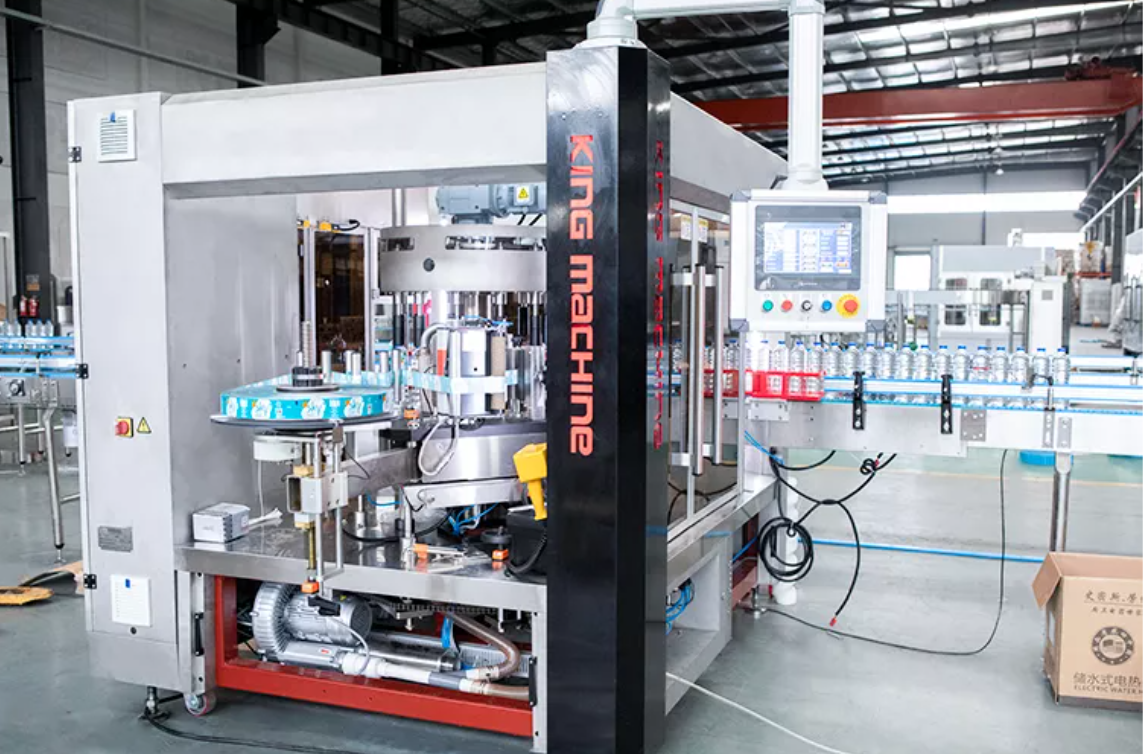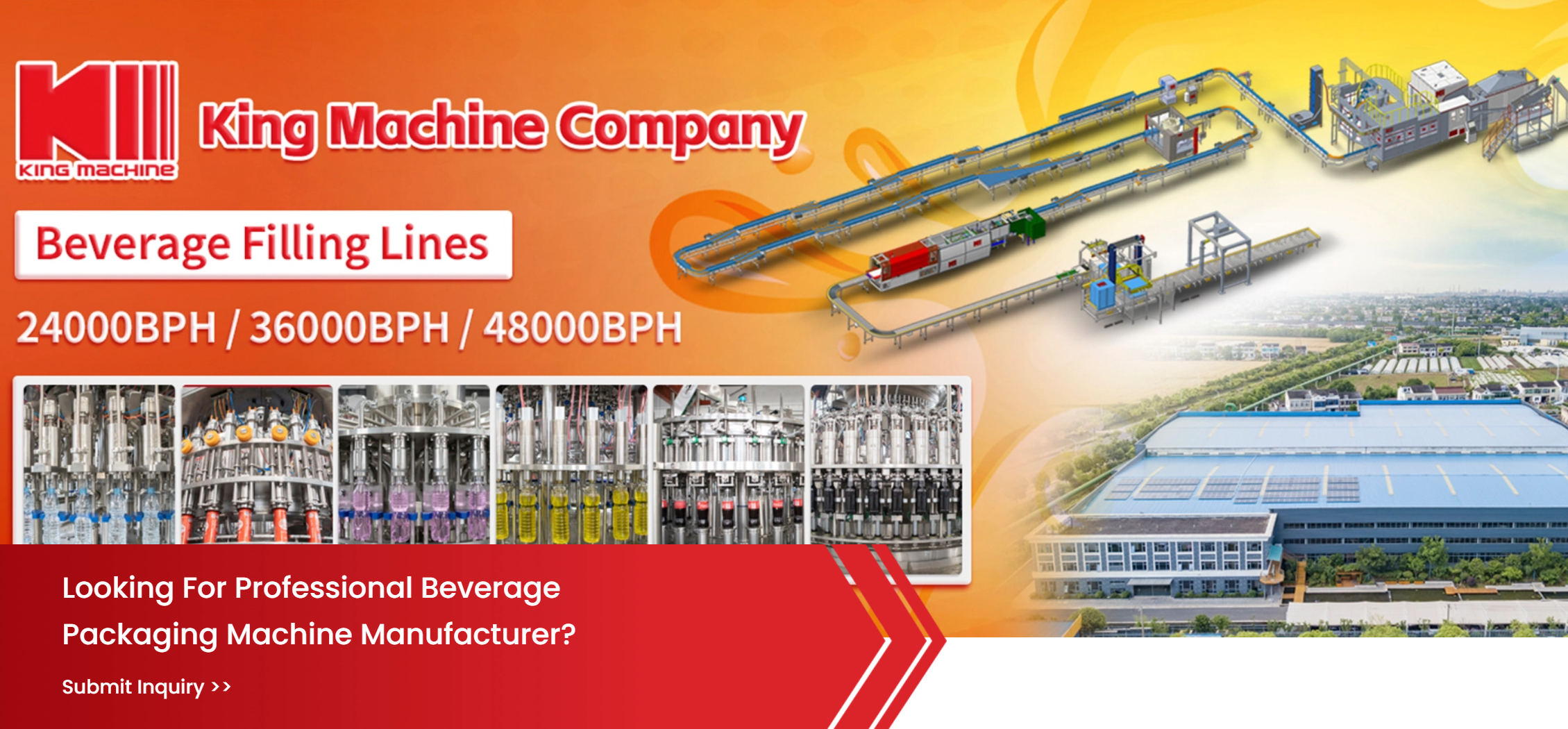Views: 0 Author: Site Editor Publish Time: 2025-05-30 Origin: Site










Canning plays a crucial role in preserving products across industries, from food to pharmaceuticals. But choosing the right canning equipment can be overwhelming. In this guide, we'll walk you through the essentials of commercial canning equipment. You'll learn how to select the best machines, based on your production needs and business goals.
Commercial canning equipment refers to specialized machines used to package products into cans, typically in industries like food, beverages, and chemicals. These machines ensure precise filling, sealing, and labeling, preserving the quality of the product. Canning is a vital process that extends shelf life, protects against contamination, and provides convenient storage and transportation. It helps maintain freshness, flavor, and nutritional value, making it a key component in product preservation and distribution.
Canning equipment plays a vital role in ensuring consistency and quality control across production lines. It helps businesses meet industry standards, avoid contamination, and reduce product waste. By automating the canning process, companies can significantly improve production efficiency and speed.
The right canning equipment also impacts a business's scalability. As companies grow, the ability to scale up production without compromising quality or increasing costs is essential. Investing in reliable, high-performance canning equipment can streamline operations and improve cost efficiency, making it an indispensable asset for any business looking to expand.

When selecting canning equipment, the first step is understanding your production volume. Smaller businesses may benefit from manual or semi-automatic machines, which are cost-effective and flexible. If your operation requires a higher production capacity, you might need a fully automated system to increase efficiency and output.
Look for machines that can grow with your business. Choosing equipment that allows for easy upgrades or expansion will save you money in the long run. Opting for scalable machines means you won’t need to replace your entire setup as your production needs increase.
The size of your facility impacts which machines will work best for you. Ensure you have enough space for the entire canning line, from filling to packaging, and leave room for maintenance access. It's crucial to evaluate the footprint of the equipment and how it fits into your existing space.
A well-planned canning line layout can boost efficiency. Arrange your equipment to ensure smooth transitions between stages, minimize downtime, and provide easy access for maintenance. The right layout can reduce labor costs and streamline production.
The cost of canning equipment varies depending on your needs and production scale. Small-scale machines may start at around $20,000, while high-end, fully automated systems can cost over $500,000. Consider the balance between cost and the features you need to make the best investment for your business.
If you're on a budget, financing or leasing options can help. Financing allows you to spread out the cost of equipment over time, while leasing provides a lower upfront cost. Compare both options to decide which fits your financial situation best.
Choosing the right supplier is crucial. Look for one with a strong reputation in the industry, offering excellent customer service, customization options, and a track record of quality equipment. It's essential that your supplier can meet your specific business needs.
Post-sales support is just as important as the equipment itself. Ensure the supplier offers good training, maintenance, and troubleshooting services. Having reliable support can minimize downtime and help your business run smoothly.
A can filling machine is essential for filling cans with your product. It’s responsible for ensuring the right amount of product is placed inside each can, maintaining consistency throughout the process. These machines can handle a wide range of products, from liquids to solids and viscous materials.
There are different filling methods:
● Gravity Filling: Ideal for low-viscosity liquids, it uses gravity to fill cans.
● Piston Filling: Suitable for thicker liquids and semi-solids, it uses pistons to fill cans with high precision.
● Pump Filling: Used for products with varying viscosities, it relies on pumps to move the product into cans.
When choosing a filling machine, consider:
● Fill Accuracy: Ensure that the machine fills cans to the exact required level, minimizing waste.
● Speed: The machine should match your production speed without compromising quality.
● Compatibility: Make sure it can handle different product types, such as liquids, solids, or viscous products.
A can seamer is responsible for sealing the can after it's filled, ensuring no contamination occurs. The seaming process is crucial for product freshness and extending shelf life. A reliable seal prevents the contents from spoiling and maintains quality throughout transportation and storage.
When selecting a seamer machine, consider:
● Speed: It should operate at a speed that matches your production line without reducing efficiency.
● Ease of Operation: The machine should be user-friendly and require minimal maintenance.
● Types of Can Seamers:Rotary Seamers: These are often used for high-volume production, where the can rotates during the sealing process.
○ Non-Rotary Seamers: These keep the can stationary while the seamer rotates, ideal for products that need extra care.
Labeling machines apply labels to cans for branding and product identification. They ensure that labels are applied consistently and accurately, helping businesses comply with regulatory requirements. These machines can handle different label sizes and types, making them versatile for various products.
Date coding machines print essential information like production dates, batch numbers, and expiration dates. This is crucial for traceability, quality control, and customer trust. It also ensures that businesses comply with food safety and product recall regulations.

● Depalletizers: These machines unload cans from pallets and feed them into the production line, saving time and effort.
● Rinsers: Before filling, cans must be cleaned to ensure sanitation. Rinsers use water or air to remove dust and contaminants, ensuring clean cans for filling.
After filling and sealing, cans need to be grouped and stacked for storage and distribution. Packing machines group the cans together, while palletizers stack them onto pallets for easy handling and transport.
To keep your canning equipment running smoothly, regular maintenance is essential. Depending on usage, service should be done every few months to annually. High-volume systems might need more frequent checks to ensure that all parts are functioning optimally. Be sure to follow the manufacturer’s recommendations for service schedules.
Preventative maintenance can save your business from costly repairs. Clean and lubricate moving parts regularly, check for wear and tear, and replace any damaged components. Keeping an eye on seals, pumps, and fillers will help prevent downtime and keep your production line running efficiently. Properly trained staff can also spot potential issues early before they become major problems.
To ensure smooth operations, training is key. Staff should be familiar with operating the canning equipment, understanding the control panels, and troubleshooting minor issues. Proper training can reduce mistakes, increase efficiency, and help prevent damage to the equipment. Teach staff the importance of product handling, from filling to sealing, to maintain product integrity and quality.
Choosing the right commercial canning equipment depends on factors like production volume, space, and budget. Consider the equipment features that best fit your business needs. It's also crucial to select a reliable supplier who offers good support and maintenance. Proper maintenance ensures your equipment runs smoothly and lasts longer, helping your business thrive. King Machine has years of experience in designing and manufacturing customized commercial canning equipment for a variety of industries . Therefore, feel free to contact us anytime with your inguiries.

A: The can filler and seamer are crucial as they directly impact product quality and sealing.
A: Costs vary greatly based on production volume and features, starting from $20,000 for basic systems to over $500,000 for high-end, fully automated lines.
A: Yes, many systems are modular and can be upgraded to increase capacity as your production needs expand.
A: Reputation, customer service, customization options, and warranty support are critical factors when choosing a supplier.